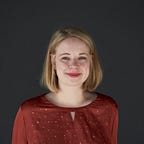(Many) solutions stories on refugee issues: The final edition
Food security — a bonus edition.
It’s the fifth and final issue of our series on refugees. This series has been an experiment. When I thought about covering refugees in The Response a month ago, I quickly realized that one edition wouldn’t, in any way, do the topic justice and that I couldn’t dismiss the complexity of this issue just in order to stick to the format of one issue/week. With your help, I dove deep into the scope of the problem, and then into responses in the areas of higher education, labor market access, mental health, and, today, food security.
Is there anything that you’ve missed or think we should consider next time? Will you use the information provided in these newsletters in any specific way? We’d love to hear about it. Just hit reply.
Often, refugees are food insecure, which means that they lack reliable access to sufficient food that is affordable and nutritious. Humanitarian organizations like the World Food Programme or the UNHCR aim to provide adequate food access, but there isn’t a one-size-fits-all approach for every country and refugee camp. Today, I’m sharing with you three stories on that issue that all are reported by SJN hub members (like you).
When we asked on social media for your favorite stories about refugees, BBC radio producer William Kremer shared a story his colleague Tom Collsreported. For the series “People Fixing the World,” Colls covered how cash cards are changing the way we think about aid — by giving consumer choice to refugees. Colls meets a Syrian family in Lebanon and learns about their experience using cash-loaded atm-like cards that refugees receive. While several studies have shown that cash is cheaper than giving out goods, this approach is not without flaws: In some cases, shop owners discriminate against refugees by charging them more for their products.
Julia Travers shared with us a story she reported from the Domiz refugee camp in Northern Iraq, where refugees can grow and sell their own food. The Azadi Garden (Azadi is Kurdish for liberation) includes greenhouses, nurseries for trees and plants, and raised beds. One caveat: even though gardening initiatives seem to give refugees more freedom, cultivating land can make the camps seem more permanent, which is difficult to accept for some.
The third story, reported by Jennifer Hattam, explores how refugees in Turkey are trained to become food entrepreneurs, from marketing and legal issues to food safety and the development of a business plan. Maybe most importantly, they get access to commercial-grade kitchens to work on their culinary ideas. The program is helping refugees succeed during their resettlement, and it aspires to improve the often fraught relationship between refugees and their host communities by gathering people with a mutual love for food.
Lisa Urlbauer
Curator of The Response
“Cash Cards For Syrian Refugees”
Lebanon
Tom Colls
BBC
[17-minute podcast]
Instead of pre-selected goods, refugees in Lebanon receive cash benefit cards.
“Community And Vegetables Grow Side-By-Side In Syrian Refugee Camp Gardens”
Iraq
Julia Travers
NPR
[1,000 Words]
In this camp, refugees turn dry patches of land into a source of income.
“A New LIFE: Helping Refugees Become Food Entrepreneurs”
Turkey
Jennifer Hattam
Culinary Backstreets
[1,200 words]
Refugees try to gain financial independence through the Turkish food sector.
The Response is a weekly newsletter that reframes current news events, highlighting ways people are responding to crises and problems we see every day in the news. Why? Because we want to add perspectives to the conversations that go beyond the doom-and-gloom news cycle — giving you The Whole Story. Did someone forward you this newsletter? Then click here to sign up.
